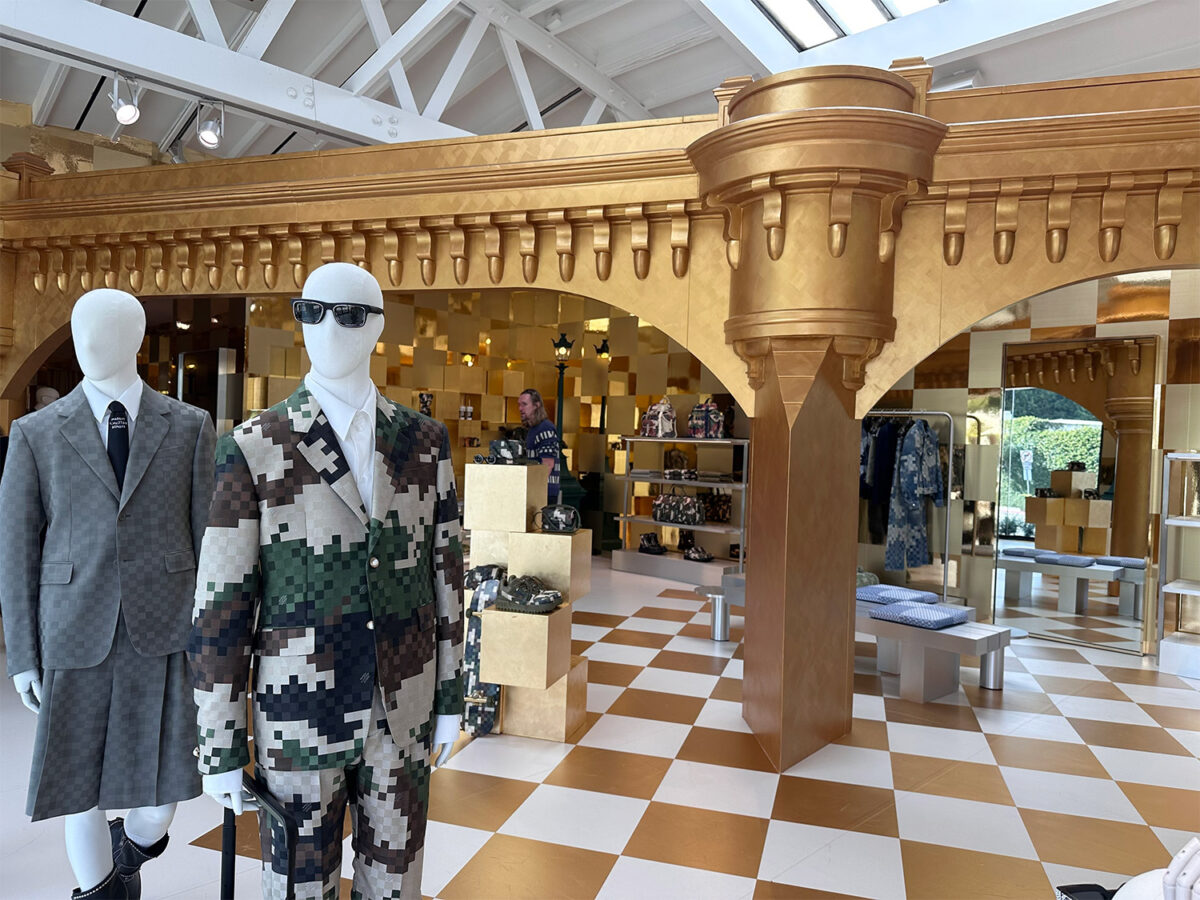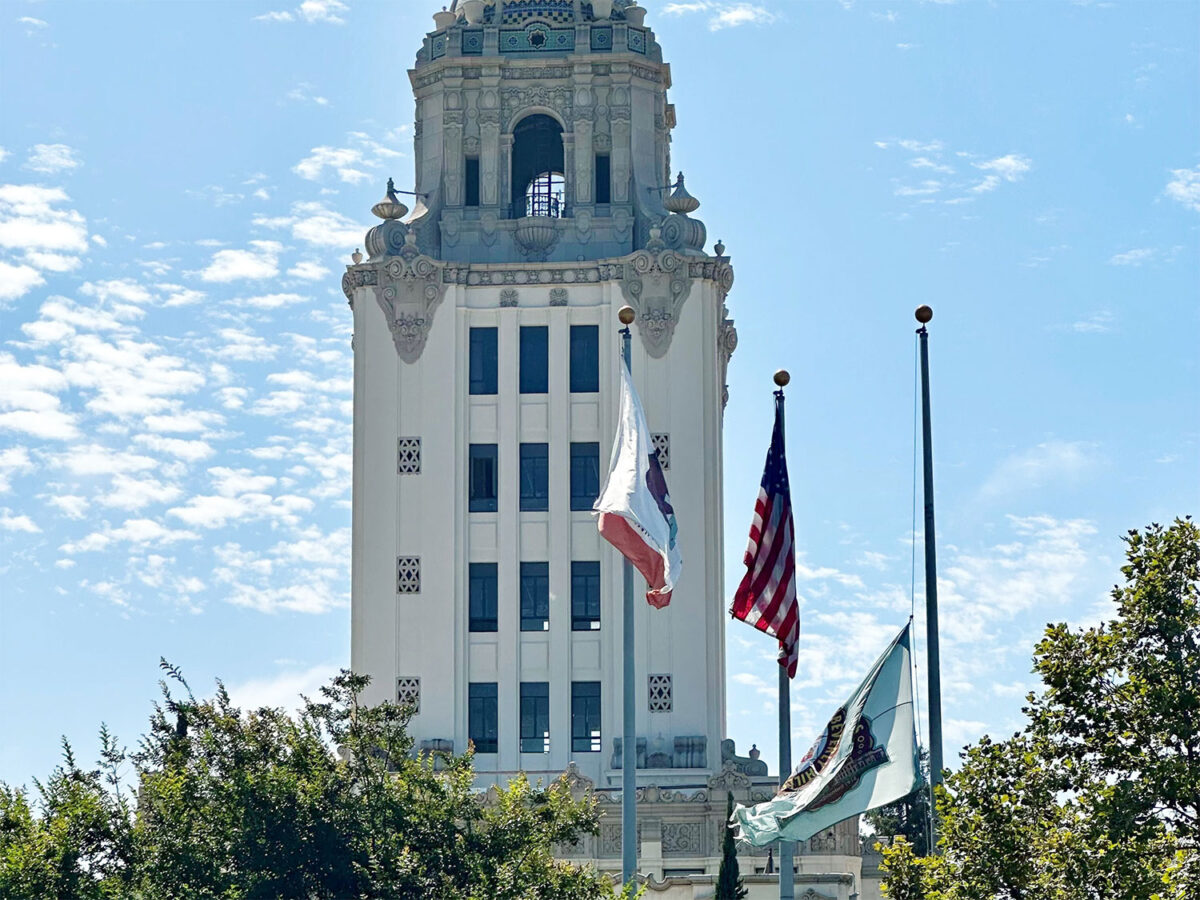The city of Beverly Hills has signed off on Cheval Blanc, the ultra-luxury hotel plus retail and private club to be developed by LVMH Moët Hennessy Louis Vuitton.
At its regular meeting Nov. 1, the City Council voted 4-1 to approve the 1.3-acre project on the 400 block of North Rodeo Drive and a development agreement hammered out by Mayor Lili Bosse, Councilmember Lester Friedman, the developer and private lawyers.
Councilmember John Mirisch cast the dissenting vote, arguing that the Paris-headquartered LVMH’s commitment to the city should include putting money toward affordable housing.
But his colleagues praised a hotel in which the average room will go for $2,045 per night in today’s dollars, citing the revenue it can generate for the city.
“We’re very fortunate to live in this luxury environment,” said Vice-Mayor Julian Gold. “This luxury environment actually creates the sense of home that Councilmember Mirisch pines for. And, at the same time, it provides the safety – the fire and police – and all the other amenities that we have.”
Gold called LVMH “more than a developer” but “an organization who understands who we are.”
The development agreement is “hundreds of millions of dollars that will provide the reasons that everybody lives here, for the police, the fire, the schools, the safety – for the magic of Beverly Hills” Bosse said.
“There are times in your life that just change you,” the Mayor added. “Everybody in this room is a part of history right now.”
Bosse noted that no public speakers save a UNITE HERE representative, who pressed for affordable housing, came to oppose the project.
The Council had approved the LVMH project at a Sept. 20 meeting, on the condition that they reconvene to approve the development agreement.
Under the agreement, hotel guests must pay a 5% surcharge tax on top of a 14% transient-occupancy tax.
LVMH also is required to pay $26 million to the city as a public benefits agreement and $2 million to benefit arts and culture.
The developer has to begin construction within a year, and complete construction by 2027. Should LVMH not meet this deadline they must pay an additional $24 million in liquidated damages to the city.
The development agreement plus two different economic analysis reports – one prepared in conjunction with the developer, the other with the city – laid bare the project’s high stakes.
“We are not seeking your approval as a speculative developer,” said Anish Melwani, Chairman and CEO of LVMH North America. “We are here before you as a long-term member of the Beverly Hills community.”
LVMH has paid $465 million to acquire the property, and the developer expects to spend $666 million on construction, figures that total $1.1 billion.
So high are the project costs that the LVMH-prepared economic analysis finds that the hotel will initially lose money.
Cheval Blanc is, however, expected to generate revenue for the city. Assuming a 75% room occupancy, the project would net $14.7 million in annual general fund revenues.
Henry Finkelstein, a Greenberg Glusker lawyer who presided over project negotiations, extrapolated a revenue estimate over 30 years of $778 million.
Finkelstein said the developer made “unusual commitments” on “land they already own.”
Other cities would have to subsidize LVMH to build such a project, Finkelstein said, whereas the cachet of Beverly Hills gives the city the upper hand.
“I think it is fair to say this is the only city in the world that could have made this deal,” Finkelstein said.
The four supporting councilmembers effusively praised the development.
“This will be a true gift to our community,” said Sharona Nazarian, who added that the revenue generated would help. “We need to bring in businesses that are a strong match to our city.”
“This is a once in a generation project,” stated Lester Friedman, who added that future Councils may use LVMH’s revenue for emergency services, affordable housing, or whatever they choose.
Bosse said the city’s interests and LVMH’s were aligned.
“The owners of this particular property are partners in our city,” she said, noting that LVMH already owns or leases multiple shops on Rodeo Drive. “I view this really as a partnership. It is a win-win.”
Meanwhile, Mirisch expressed distaste for the project.
“We look like marks, suckers, yokels,” Mirisch said, especially upset about a $26 million public benefits agreement he scoffed at as a “rounding error” for LVMH that amounted to “chump change” for the city.
He went on to compare the development agreement to notorious one-sided deals in American history, from Peter Minuit buying Manhattan for $24 worth in trinkets to the Red Sox selling Babe Ruth to the Yankees.
The crux of Mirisch’s argument was that either the developer, prospective guests, or both needed to earmark some money for affordable housing. Beverly Hills currently stands about 3,000 affordable housing units shy in meeting the state’s Regional Housing Needs Assessment, commonly known as RHNA.
“An oligarch who can afford a $2,000 night of conspicuous consumption can afford to spend an extra $100 on affordable housing,” he said.
Mirisch’s colleagues largely sidestepped his argument.
Nazarian did approve the idea of putting hotel revenue to a general fund instead of specifically setting it aside for affordable housing.
The resources needed to fight COVID-19 demonstrated the City Council must exercise “revenue discretion,” Nazarian said, later adding that the project would help, “Maintain fine services with our police, our fire, and our schools.”







